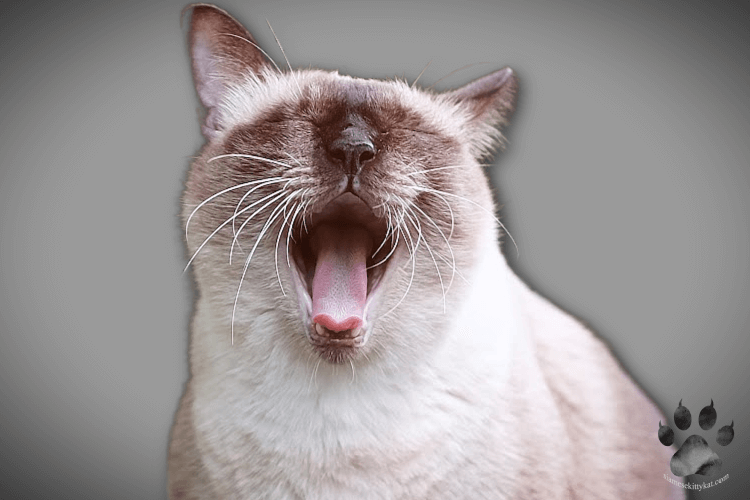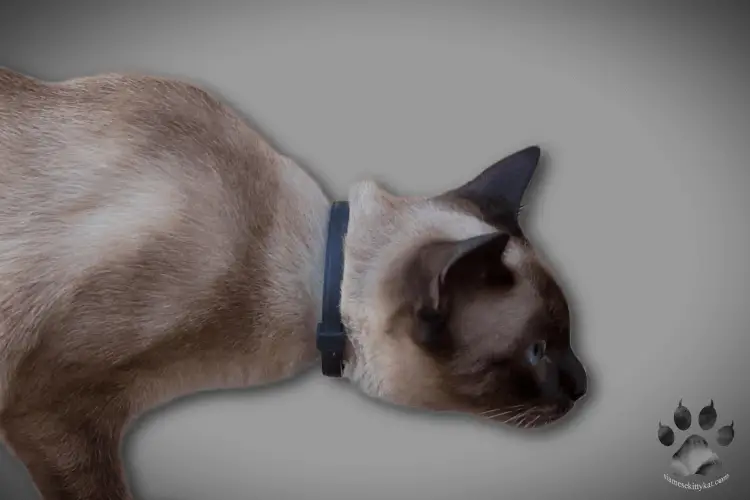Sneezing is a pretty common occurrence for most people. We don’t think much of it and assume it’s a natural bodily function. However, cats are different.
Don’t worry if your cat sneezes now and then, but watch for a pattern of sneezing. Take your cat to the vet if he sneezes more than usual or for a long time. You might dismiss the situation as nothing, but it could lead to more serious illnesses if you ignore it.
My Siamese cat, Batman, has been sneezing a lot lately. I’m not sure what’s causing it, but it could be allergies. He’s always been a bit prone to allergies. It’s not surprising that his allergies are acting up with the change of seasons.
I’m keeping a close eye on him and ensuring he gets the proper care and medication.
This article looks at some of the reasons why Siamese cats sneeze and how you can help them.
Why is my Siamese Cat Sneezing?

Cats are so adorable, aren’t they? Look at how they cuddle up with you while watching a movie or give you their special look when they want their food. They’re so sweet; it’s hard not to fall in love with them. But the thing is, they sometimes get sick.
Sneezing is a common symptom that can mean a few different things. It’s nothing to worry about if it’s your cat’s first sneeze in a few days. However, you should take them to the vet if your cat is sneezing a lot.
There are many reasons why your cat could have a fever, so it’s essential to get them checked out by a professional.
1. The most common reason is that they have an upper respiratory infection. This is due to viruses like the feline herpesvirus and feline calicivirus. These viruses are contagious among cats, but don’t worry, you can’t catch them from your furry friend.
Upper respiratory infections can last for up to three weeks. However, most cases are mild and will clear up within a week.
2. Cats sneeze for the same reasons we do – they have a tickle in their nose! Your cat will often shake their head or otherwise attempt to dislodge the irritant.
3. Your cat may react to dust, chemicals, or other unpleasant smells. Try to identify any potential sources of strong smells if this is the case. Then, remove them from your cat’s environment.
4. It might be because your cat is allergic to dust or other airborne particles. This is a common problem for cats and can be difficult to manage. You will know not only by sneezing, but also by the redness of its eyes and the rashes that will appear on its skin.
The best way to reduce your cat’s allergies is to keep its environment clean and dust-free. You may also need to consult with a vet to find the best course of treatment if your cat’s allergies are severe.
5. There could be a foreign object stuck in their nasal passages. It’s worth checking to see if there’s anything stuck up their nose. A foreign object could be anything from a piece of hair to a small twig. The best thing to do is take them to the vet. They’ll be able to have a look and remove whatever it is.
6. Dental disease can cause sneezing in cats in some instances. It can be quite alarming when this takes place, although this is rare. Besides sneezing, your cat might also be in pain, lose its appetite, or have a fever. Unfortunately, many people don’t realize this, so make sure you know how to check your cat’s teeth.
You should first schedule a dental checkup with your vet. They will perform a physical examination of your cat’s teeth. They may recommend a dental cleaning, which is not as scary as it sounds. A dental cleaning can also help prevent tooth pain, tooth loss, and gum disease for your cat.
What Should I Do if My Siamese Cat Keeps Sneezing?

You can do a few things to help if your cat is sneezing.
1. Try to figure out what’s causing the irritation. Is there a particular time of day when your cat sneezes more? Are they around a certain type of dust or pollen?
You can take steps to remove the trigger from your cat’s environment once you know what it is.
Certain scents can be irritating to cats, like air fresheners or laundry detergents. Try to keep your kitty out of the room where the scent comes from as much as possible.
2. It might be time to check in with the vet if your cat sneezes more than usual. Vaccines can help prevent your cat from getting feline herpesvirus or feline calicivirus.
You should also talk to your vet about other health concerns causing your cat to sneeze.
Keep an eye on your kitty’s symptoms and ensure they’re not showing any other signs of illness, like a runny rose or fever.
3. The litter box needs to be constantly cleaned, and it’s always a good idea to ensure the litter is healthy for your cat. There are a lot of different types of cat litter on the market. Make sure the one you choose won’t give your cat an allergic reaction.
Some types of litter can create a lot of dust when they’re used. That dust may irritate your cat’s nose when they sneeze.
When to Take a Sneezing Cat to the Vet
Not sure if you should take your cat to the vet? There are a few things you can look for. Sometimes, symptoms of illness in cats are minor and may not seem severe.
However, take your cat to the vet if your cat is frequently sneezing. It’s a lot more reliable than trying to diagnose it yourself. Your vet is a good source of information and can give you great advice.
Most of the time, sneezing indicates respiratory illness. It’s up to you to know what’s normal and what’s not, since cats can’t tell you how they’re feeling. Take your cat to the vet if you think she may have a serious respiratory infection.
These are the symptoms that indicate it’s time for a vet visit:
Conclusion
Cats are often known as independent creatures who love to live life on their own terms. Siamese cats are no exception to this. They are known to be robust and healthy cats, but this does not mean they do not face health problems.
There are conditions that Siamese cats are susceptible to, like any other cat breeds. This includes the problem of sneezing.
Sneezing in cats isn’t always a cause for alarm. However, it is essential to keep an eye on it and any other symptoms that might be present. Sometimes a cat sneezes to get rid of something irritating its nose, like dust or pollen.
It’s best to take your cat to the vet if he keeps sneezing or seems otherwise unwell.
We gathered all the health tips tailored toward maintaining your Siamese cat’s optimal well-being. Check it out here: Siamese Cat Health: A Complete Guide

